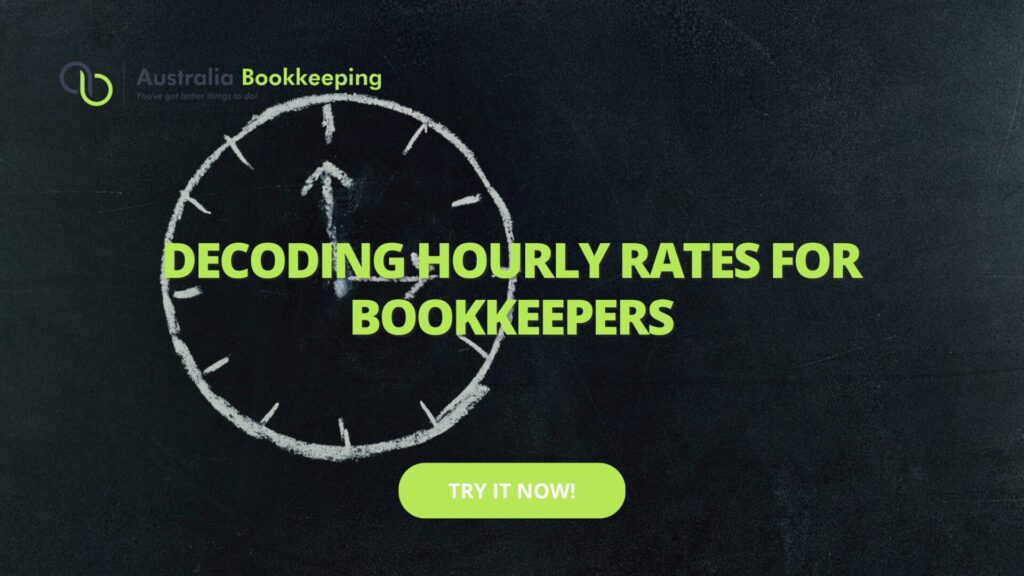Decoding Hourly Rates for Bookkeepers: A Comprehensive Guide
1. Introduction
Are you a small business owner in need of bookkeeping services? Understanding the different hourly rates charged by bookkeepers can be a daunting task. It’s important to know what you’re paying for and what services you can expect in return. In this comprehensive guide, we will decode the hourly rates for bookkeepers and provide you with all the information you need to make an informed decision.
Schedule a free call with the most reliable accountants bookkeepers.
From easy bookkeeping solutions to virtual services and everything in between, we’ve got you covered. Keep reading to find out more about CPA bookkeeping, tax and bookkeeping services, MYOB bookkeeping, and more!
2. Understanding hourly rates for bookkeepers
When it comes to understanding hourly rates for bookkeepers, there are a few key factors to consider. First and foremost, it’s important to recognize that rates can vary depending on the level of experience and expertise of the bookkeeper. A more experienced bookkeeper may command a higher hourly rate, but they may also provide a higher level of quality and accuracy in their work.

Additionally, the complexity of your bookkeeping needs can also impact the hourly rate. If you require specialized services such as tax preparation or financial analysis, it’s likely that the hourly rate will be higher to account for the additional expertise required.
It’s also worth noting that location can play a role in bookkeeping rates. Rates in larger cities or more expensive areas may be higher compared to rates in smaller towns or rural areas.
By understanding these factors and discussing your specific needs with potential bookkeepers, you can get a better sense of what you’re paying for and make an informed decision that aligns with your budget and requirements.
3. Factors that influence hourly rates
There are several key factors that can influence the hourly rates of bookkeepers. Understanding these factors can help you make an informed decision when choosing a bookkeeper that fits your budget and requirements.

One major factor is the level of experience and expertise of the bookkeeper. Generally, more experienced bookkeepers will command higher hourly rates. However, their years of experience often translate to a higher level of quality and accuracy in their work.
The complexity of your bookkeeping needs is another important factor. If you require specialized services such as tax preparation or financial analysis, the hourly rate is likely to be higher to account for the additional expertise required.
Location can also play a role in bookkeeping rates. Rates in larger cities or more expensive areas tend to be higher compared to rates in smaller towns or rural areas.
By understanding these factors, you can ensure that you are paying for the level of expertise and services that align with your specific needs.
4. Industry standards and benchmarks
When it comes to determining the hourly rates for bookkeepers, it is crucial to consider industry standards and benchmarks. These standards help establish a reasonable range for bookkeeping rates and ensure that you are not overpaying or underpaying for the services you receive.
One way to find industry standards is to consult professional organizations or associations for bookkeepers. These organizations often conduct surveys and compile data on average hourly rates across the industry. By comparing your prospective bookkeeper’s rates to these benchmarks, you can gauge if they are charging a fair price.
Additionally, it is important to consider the specific needs of your industry. Certain industries may require more specialized knowledge and expertise, which can warrant higher hourly rates. For example, bookkeepers who specialize in the healthcare or legal sector may command higher rates due to the intricacies of these industries.
By understanding industry standards and benchmarks, you can ensure that you are getting a competitive rate for the bookkeeping services you need.
5. Assessing the value of bookkeeping services
When it comes to hiring a bookkeeper, it’s not just about finding someone who offers a competitive rate. It’s also important to assess the value that their services bring to your business. While hourly rates are a significant factor, they should not be the sole determining factor in your decision-making process.
When evaluating the value of bookkeeping services, consider factors such as experience, qualifications, and expertise. A bookkeeper with extensive experience in your industry may be able to provide insights and strategies that can positively impact your financial management. Additionally, look for bookkeepers who offer a wide range of services, such as financial reporting, budgeting, and tax preparation. This comprehensive approach ensures that all aspects of your financial record-keeping are taken care of.
Furthermore, the efficiency and accuracy of a bookkeeper can greatly affect the value they bring to your business. Look for bookkeepers who utilize advanced technologies and software to streamline their processes and minimize errors. This not only saves you time but also reduces the risk of costly mistakes.
By assessing the value of bookkeeping services beyond just the hourly rate, you can make an informed decision that aligns with your business’s needs and goals.
6. Negotiating hourly rates
While it’s crucial to consider the value provided by bookkeeping services beyond just the hourly rate, negotiating rates is still an important aspect of the hiring process. When engaging in rate negotiations with potential bookkeepers, it’s essential to remember that the hourly rate is not set in stone. Many factors can influence the final rate, including the complexity of your financial records, the volume of work required, and the duration of the engagement.
 When negotiating hourly rates, be prepared to have an open and honest discussion about your budget and expectations. It’s important to find a balance between affordability and the quality of service you require. Some bookkeepers may be willing to offer discounts or flexible pricing structures based on your specific needs. Take the time to compare multiple quotes and assess the overall value of each bookkeeper’s services before making a decision.
When negotiating hourly rates, be prepared to have an open and honest discussion about your budget and expectations. It’s important to find a balance between affordability and the quality of service you require. Some bookkeepers may be willing to offer discounts or flexible pricing structures based on your specific needs. Take the time to compare multiple quotes and assess the overall value of each bookkeeper’s services before making a decision.
Remember that while finding an affordable rate is important, it should never be the sole focus of your search. Prioritize the expertise, experience, and efficiency of bookkeepers in order to ensure you are hiring someone who can truly support your business’s financial needs.
7. Tips for hiring a bookkeeper based on hourly rates
When hiring a bookkeeper based on hourly rates, there are a few essential tips to keep in mind. First and foremost, conduct thorough research and gather recommendations from trusted sources. It’s crucial to find a bookkeeper who has a proven track record and specializes in your industry.
Next, consider conducting interviews with potential bookkeepers to assess their level of expertise and professionalism. Ask about their experience with similar businesses and inquire about any certifications or qualifications they may hold.
Furthermore, before finalizing your decision, carefully review the terms and conditions of the bookkeeper’s contract. Pay close attention to any additional fees or charges that may be incurred outside of the hourly rate.
Lastly, always trust your gut instinct. If a bookkeeper’s rates seem too good to be true, they probably are. Remember, it’s better to invest in a reliable and experienced bookkeeper who will provide invaluable support to your business rather than opting for someone solely based on their low hourly rate.
8. Conclusion: Making informed decisions about bookkeeping rates
In conclusion, when it comes to hiring a bookkeeper based on hourly rates, it is essential to be well-informed and thorough in your research. Remember to gather recommendations, conduct interviews, and review contracts before making a decision. While it can be tempting to choose a bookkeeper solely based on a low hourly rate, it is crucial to consider their expertise, professionalism, and track record. Investing in a reliable and experienced bookkeeper may come with a higher hourly rate, but it will provide invaluable support to your business in the long run. By following these tips and trusting your gut instinct, you can make an informed decision and find a bookkeeper who suits your specific needs and industry.


